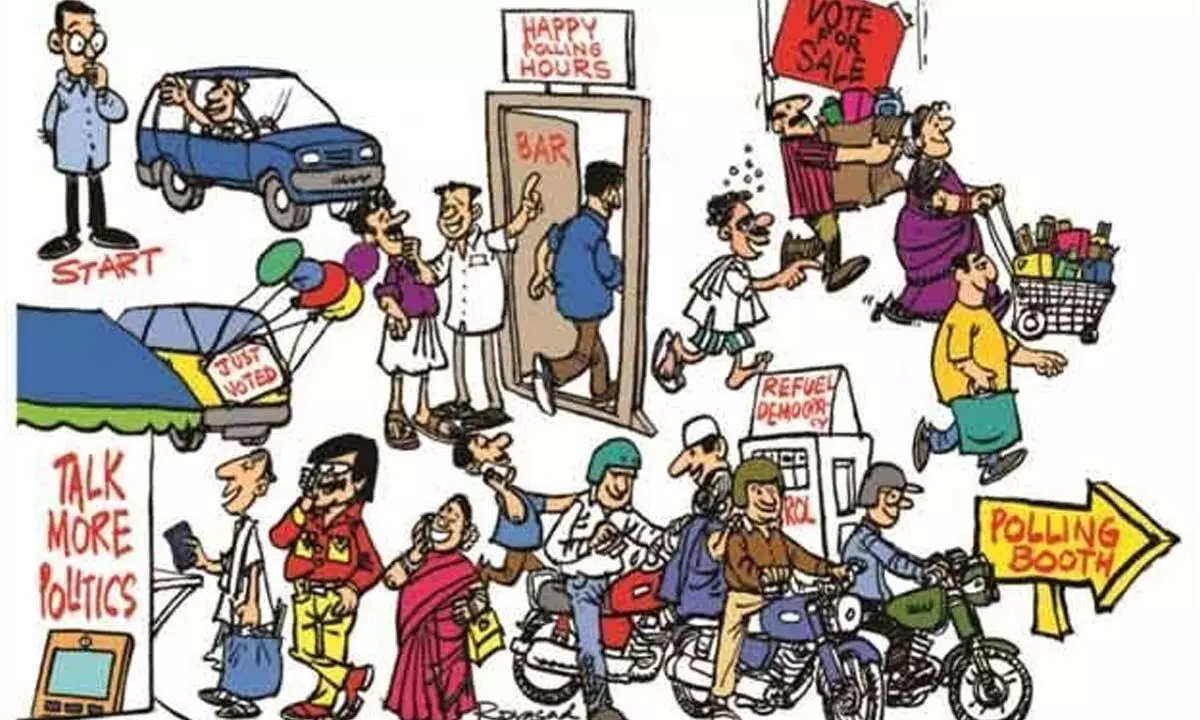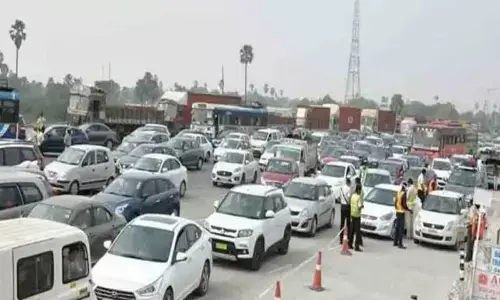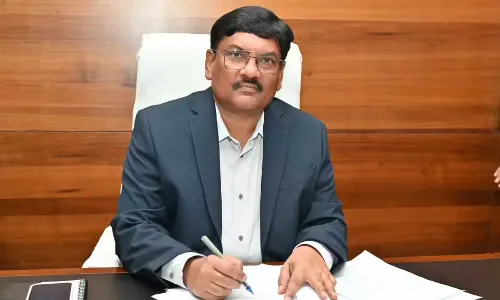Freebies may spell economic disaster

Do we have robust resources and a sturdy financial foundation to offset fiscal profligacy?
As the rat race hots up to capture power by hook or by crook – mostly by the latter means – political parties, specifically the main contenders in the fray, are resorting to irrational and no-holds barred “Guarantees’ – an euphemism for ‘bribery’ – which, even if partially implemented, will result in economic bankruptcy of the country. Does India have the revenue potential to compensate such indulgences? Do we have robust resources and a sturdy financial foundation to afford the consequences of financial impropriety? The package of goodies offered by the political parties during elections has absolutely no value in terms of productivity and progress of the country. On the contrary, it can become an impediment to development and result in a situation of stagnancy.
The aftermath of political-populism induced financial imprudence has adversely impacted the economic ecosystem in the country. An in-depth analysis of India’s fiscal dynamics substantiates the fact that unwieldy financial commitments being touted by the political parties, if implemented, would put the country on the road to economic disaster. Except for possible short-term benefits, a majority of the sops, schemes and freebies have had no durable solution for the beneficiaries. In addition to being a heavy burden on India’s exchequer, the largesse has never improved the beneficiaries’ standard of living. Moreover, diversion of finances, and, off-budget allocations to cater to political exigencies and populist schemes, have dented financial resources meant for crucial infrastructure projects related to health, education, logistics and many other social sectors. Most importantly, the freebies have also been instrumental in triggering a chain reaction in the form of high inflation, hike in prices, and increased taxation.
The ‘guaranteed’ plethora of sops, freebies, and, to a considerable extent subsidies and schemes, will consume a huge chunk – i.e. between 7-10 per cent – of the revenues accrued through direct taxes, indirect taxes, and other non-tax sources. The Central government expenditure on subsidies tripled during the past 10 years from Rs 2.5 lakh crore in FY14 to Rs 7.5 lakh crore in FY23. According to official figures, the spurt in allocation during this period is attributed to unavoidable escalation in expenditure during the pandemic.
Two major components of subsidy, i.e., fertilisers and food, are a necessity to facilitate agriculture productivity and food security. But there is a slew of other non-merit subsidies with no return on investment. The latter comprises certain specified goods/services purchased/utilised by consumers for which 25% to 50% and even 100% of the cost is borne by the government. Subsidies should empower the beneficiaries with sustainable and long-term livelihood options like creating employment opportunities, facilitating self-employment and enabling them to afford essentials. Data related to the period FY14 to FY24 reflect an increase in direct taxes and not-so-significant returns from indirect taxes. While the direct taxes almost tripled from Rs 6.38 lakh crore in FY14 to Rs 16.63 lakh crore in FY23, indirect tax increased from a little over Rs 11.33 lakh crore to Rs 13.94 lakh crore during the same period.
Revenue accruals through taxes and other sources like public sector divestment are absolutely insignificant, considering the humungous debt burden which is spiraling to a point of no return. According to official figures, the outstanding internal and external borrowings, and, other liabilities of the Central government, at the end of 2024-2025, are estimated to increase to Rs 183,67,132.46 crore (internal Rs 177,92,204.95 crore and external Rs 5,74,927.51 crore) from Rs. 168,72,554.17 crore at the end of 2023-2024 (RE). It is a matter of serious concern that the cumulative accruals from indirect and direct taxes – around Rs 31 lakh crore – are not sufficient to pay even the annual 20% interest due on internal and external borrowings.
According to an IMF forecast, India’s borrowings are likely to exceed the GDP from the present 57 per cent. So, how are the political parties – who are presently on freebies promising spree – planning to mobilise resources and finances to prevent the country from sliding into irretrievable depths of indebtedness?
Do they have any answers? India is afflicted with chronic indebtedness due to successive ruling political regimes, comprising arrogant and ignorant politicos, dictating and controlling crucial economic decisions by subjugating the bureaucrats and economic experts to a state of servility.
(The writer is a senior print, electronic and digital media journalist)
















